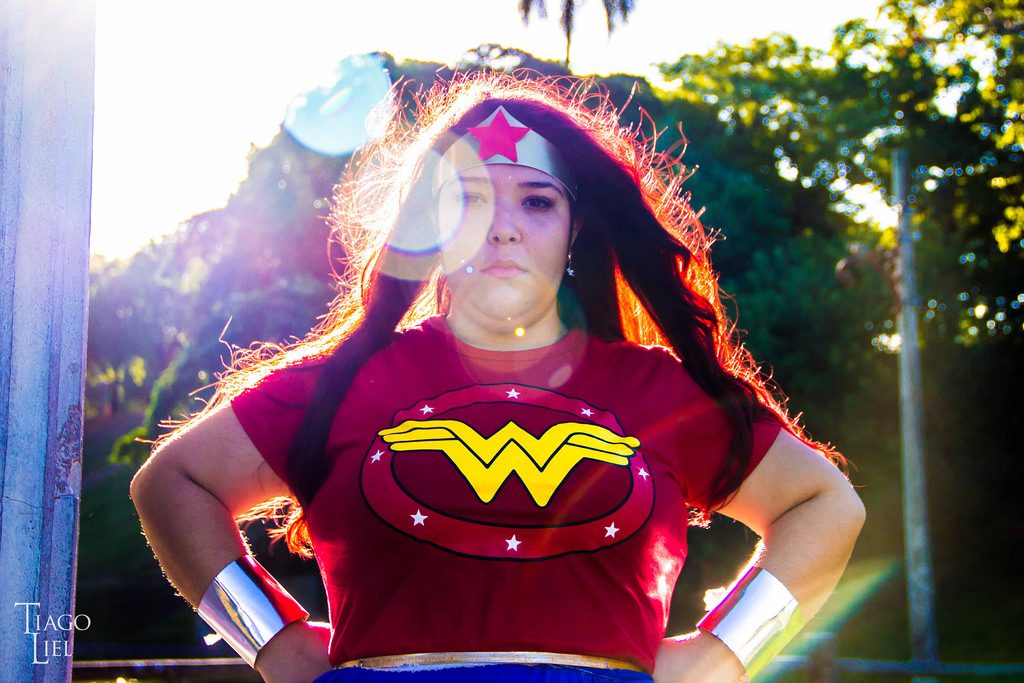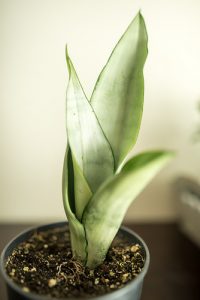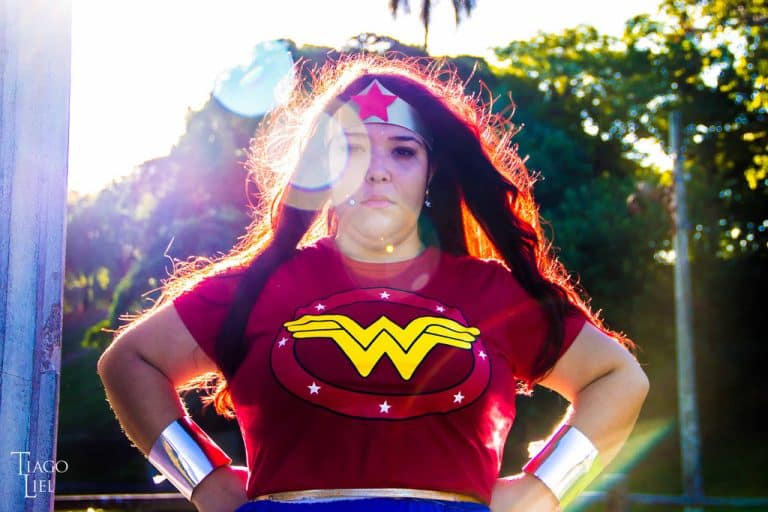My friends and I managed to scoop up the last six seats for a late showing of Wonder Woman this week. We’re not your typical action flick crowd, but after the previews played, we sat back with our ice creams and sodas and cried through every fight scene.
 To me, and to many women, Wonder Woman feels like a cultural milestone. We may have missed getting our first female president, but at least we got our first female-directed, female-starring, record-breaking box office hit.
To me, and to many women, Wonder Woman feels like a cultural milestone. We may have missed getting our first female president, but at least we got our first female-directed, female-starring, record-breaking box office hit.
I was surprised by how moved I was by this film, particularly the scenes with the Amazons. They make up the first moments of the film–strong, powerful women of all colors and builds training, fighting, and ruling together. It seems campy, but I cried as they helped each other navigate battlefields, and marveled as they flexed their wisdom and strength without shame and without apology.
Through these scenes, I keep thinking about the way Diana roared.
She roared as she lifted tanks and tossed pieces of shrapnel the size of minivans. She roared as she was forced to make gut wrenching moral decisions. She roared in her own failure, and she roared in moments of triumph. It wasn’t a bloodthirsty roar. It was a roar to rattle the earth, a roar to stamp the universe with its own unique signature.
All that roaring reminded me of a book called Women Who Run with the Wolves by Clarissa Estés. It’s a dense book–one that unpacks female archetypes from many different traditions, from the selkies of Ireland, to La Que Sabe of Hispanic culture, to the witches and maidens of European fairy tales. In each story Estés explains how and where the figure of the wild woman appears. According to Estés, when the women in these stories suffer, it’s because they’ve been soul-starved, neglecting their wilder natures to participate in a restrained, orderly hierarchy.
Estés takes her title from the dominant metaphor of the book: that spiritually healthy women are like wolves. No matter the severity of their situation, they’re experts in survival and strength. “The hallmark of a wild nature,” says Estés, “is that it goes on. It perseveres.” When wolves are sick or injured, they carry themselves to safe spaces to heal. If anything tries to harm them, they defend their space with vicious insistence.
As I’ve evolved spiritually, I’ve come to crave wildness. Psychology PhD Diana Raab says, “The important work of the wild woman involves giving voice to authentic expression that might be set aside or ignored by others.” More than anything I crave that authenticity, that permission to roar when I need to—when I’m angry or tired of fighting, when I’m struck by a heavy moral dilemma, or when I triumph in my own personal battles.
But in Mormonism, wildness is not typically seen as a virtue. Wild branches grafted into olive trees destroy the good fruit. The wilderness—a word that literally means place with a wild nature—is often unsettling for the masses. The children of Israel revolt and long to go back to Egypt of all places just to avoid the disorder and chaos that comes with living in the wilderness. This revolt is not without reason. Wildness is terrifying. It’s both boundless and autonomous. It doesn’t listen to directions. It refuses structure. It follows its own intuitive order, stirred by some deep, secret biology.
And yet, in my experience, wildness is one side of a spiritual pendulum. It embodies our most rapturous spiritual experiences: moments when even language fails to describe what we feel and intuit about our spiritual selves. Christ too embraced wildness: before be began his ministry in earnest, he sought the refuge of the wilderness for 40 days. Wildness is raw, unapologetic authenticity—a connection with our true selves, a connection with the divine.
So can we, Mormon women, also embrace wildness? This is something I continue to ask myself as I process my recent experiences in the church.
Not long ago I was asked to meet with a church leader following a lesson I’d given in Relief Society. After a little small talk and some questions about my experience as a teacher, he got right to it:
I’d made someone uncomfortable with my lessons.
After a moment of surprise I asked what, specifically, had made someone uncomfortable.
He told me that the specifics weren’t important. And though I pressed him several more times, he wouldn’t tell me.
I didn’t know what to say. I’d had mostly positive experiences in our Relief Society. It was one of the few church spaces where I still felt safe to be vulnerable and honest and real. In our lessons we cracked open our deepest wounds—our eating disorders, our miscarriages, our children out of wedlock, our feelings of self-loathing and shame. We left question marks dangling in the room and supported each other in all our wild insecurity and imperfections.
Nonetheless, this church leader maintained his warning: I needed to be careful about the discussions I led in class.
I’ve been surprised by my reaction to this conversation. Mostly I’m torn between two extremes: on the one hand, it felt like a violation of my stewardship. It seemed like an effort to control what the sisters say in our own sacred space, a space that wasn’t made for this leader, in the same way High Priest meetings aren’t made for me.
On the other hand, this is someone who helps lead a Mormon ward. According to the nature of our church, we’re a unified body. We teach and believe and profess the same things. There’s in or there’s out. There is no wiggle room, no third option. Without someone to occasionally rein things in, we might find ourselves bereft in the wilderness.
 And yet as I continue to wrestle, Estés’ words about nurturing come to mind: “The difference between comfort and nurture is this: if you have a plant that is sick because you keep it in a dark closet, and you say soothing words to it, that is comfort. If you take out of the closet and put in the sun, give it something to drink, and then talk to it, that is nurture.”
And yet as I continue to wrestle, Estés’ words about nurturing come to mind: “The difference between comfort and nurture is this: if you have a plant that is sick because you keep it in a dark closet, and you say soothing words to it, that is comfort. If you take out of the closet and put in the sun, give it something to drink, and then talk to it, that is nurture.”
For many Mormon women, especially contemporary Mormon women, we’re not nurtured by our church meetings. Our in-class discussions rarely scratch the surface of our doubts. We don’t express our most terrifying ideas or grapple with our problematic shared history. We’re pitched platitudes and Pinterest quotes even while we continue to crave deeper healing.
We’ve been hurt, not only by the inequalities leveled at us by our religion and society, but also by the simple wear and tear of mortality. We long for our real pain to be heard. We long for our true selves to be seen. Our spiritual work hinges on our ability to tell our stories and protect our sacred spaces. We must express ourselves with genuine authenticity, and—like the wolves in Estés’ book—be healed by inhabiting those safe spaces we’ve created.
We’ve sat in a space of structured, masculine spirituality for decades, maybe centuries. And despite the best intentions of our leaders, we also need autonomy in our sacred spaces. It’s time for the pendulum to restore us to a more balanced spirituality. It’s time to embrace our wildness and let ourselves roar.





26 Responses
A thousand roaring amens to this. Thank you Becca for putting words to many of my thoughts and feelings. When I finally discovered my wolf woman I found her starved and wounded in a cage after years of ignoring her to favor and please the patriarchy. Now I put her first in my life and decisions, and I’ve never been happier.
WOW, Becca, this all resonates so much with me–from how you cried during Wonder Woman (me too!) to your difficult interaction with a church leader for making people UNCOMFORTABLE (check) to everything you say about “craving wildness” (what Zina said–a thousand roaring amens). I have been thinking about Estes’ description of nurture vs. comfort all morning (and can’t wait to read this book now). So thrilled that we’ll be hearing more from you on the blog. Thank you thank you.
Most women I’ve talked to say that they cried several times during WW. How starved are we for authentic, strong representations of women if superhero fight scenes have us bawling in the aisles? (Not to denigrate the director’s achievement – she did an amazing job). We need more. We need 100 sequels, plus several spin-off films set entirely on the island of the Amazons. Seriously, I could’ve watched that for days. Also, I’m excited for you to read the book! You’ll have to let me know what you think.
This post is amazing! Thank you. I haven’t seen Wonder Woman yet, but I’m super excited to see it!
By the way, that seems strange to me that the bishop wouldn’t tell you what specific thing you said that bothered that person. And only one person was bothered, I assume, not many, so I don’t think that’s serious enough for the bishop to warn you. It’s very strange.
I love this post SO MUCH. I love the idea of being fiercely defensive and retreating to heal. I have had a copy of “Women Who Run With the Wolves” on my shelf for a couple of years – you’ve finally pushed me to start reading it! Thank you!
I hope you enjoy it! It’s taken me months to get through it because it’s so dense, but worth it.
I’ve been ambivalent about seeing Wonder Woman, but after reading this I’m interested in seeing it.
The conversation with your church leader is the epitome of Mormon dysfunctional communication (made worse by the priesthood/presided over dynamic). He should have either a) not said anything to you about the complainer or b) told you the content of what was said so you could do something about it. Telling you someone was “uncomfortable” and leaving it at that is worse than useless. It’s so frustrating when people can’t have the courage to be direct. If you’re going to criticize someone’s teaching, at least have the courage to let them know the substance of it. I’d say carry on teaching just as you have been.
Ahem… may I chime in? “Should-ing” on people can be a dangerous practice. We don’t know the specifics of the situation from all vantage points. And the guy, bless his heart, is likely doing his best. Or if he wasn’t, I sure hope we’re all allowed to screw up now and then without the villagers running in with torches. I can only hope that everyone will give everyone else the wiggle room to make the choices they believe are best. I’m sure you don’t want people “should-ing” on your choices either!
I understand what you are saying BUT how is the conversation going to be constructive and helpful if she doesn’t even know what was said to make someone feel uncomfortable? This was a great article and I agree with you Emily U.
Um, Alissa… are you “should-ing” her about not “should-ing”?
I agree that it would’ve been more beneficial if he had told me what had made people uncomfortable. To my credit, I’m careful never to go off-doctrine in my lessons. I think he didn’t want me to be put in a position where I could defend what I said, in part because though some topic might be unconventional (Heavenly Mother, talking about early saints and their revivalist roots like speaking in tongues and levitating, J Smith using a hat to translate the BoM) they’re part of our faith. We’re grown women and we can handle a little discomfort. That’s another aspect I love about Estés book, she emphasizes female maturity in a way that is empowering and refreshing.
I LOVE this. There is a huge difference between words of comfort and the work of nurturing, and I’ve never heard it expressed quite like this. Thank you.
Thanks, Katie! I love that quote too. I think it helps us take control of our own spiritual nourishment, and articulates why many church meetings fall flat for women who are really struggling (as well as why some messages actually do help).
I eagerly agree with you, but this also makes my heart hurt. I’m sorry for your experience and my experience and the experience of women the world around who have suffered at the hands of the strict order of patriarchy and the way it has begged us to be silent for millennia. My heart hurts because although I see us slowly breaking free, I don’t know if we ever will fully and I definitely don’t think it will happen before my daughter feels the weight. I keep going, but truly I don’t know how with such a broken heart.
I struggle with this too and I worry about my sons participating in a system that perpetuates such broken ideology.
But I was also raised in an area where church members were far and few between. My parents taught me to think outside the mainstream ideology, which is basically what I’ll be doing with my own kids now that we live in Utah.
This spoke to my heart. My faith journey the past few years has left me burstsing at the seams and it’s as if there is no place for me to overflow. Thank you for verbalizing all this.
I’m glad this resonates with you. I feel like Mormon women need extra space to heal (and roar with discomfort) because we not only encounter injury from regular old patriarchal society, we also receive it from our spiritual institutions. This hurts extra bad when so many of us actually like being Mormon. It’s almost like realizing you were raised by an emotionally abusive parent. You want to have a loving relationship, but when you try and set some healthy boundaries for yourself, they tell you that all of your issues are your own fault, or they force you out and refuse the relationship altogether. It gets hard to protect our heart spaces that way.
Amen Sister! Thank you for putting words to my spiritual longing.
I almost didn’t read this…that’s how trained against wildness I am. But it keeps popping up in my feed and, wow! Preach, sister! I can’t tell you the last time I was nurtured in church. “We long for our real pain to be heard.” Not just that, but accepted, acknowledged and nurtured. Not just told to read more and pray harder.
To the end that your Bishop told you someone was uncomfortable I say – how many were healed by your lesson? How many received witness of truth? How many were spiritually invigorated and recommitted to their faith? And should we give power to one person to shut that all down?
I was frustrated by that aspect of our conversation as well. I told him that there were many women who had come to me personally and told me that they really enjoyed my lessons, and that they often felt uncomfortable in other Relief Society lessons. He responded by saying that many people who come to church nowadays are “looking for reasons to leave.” It broke my heart to hear that he felt that these women should take a back seat to women who are more traditional believers, or who simply don’t like to feel uncomfortable at church. These women (who benefit from more open/vulnerable lessons) aren’t looking for reasons to leave, they’re clearly looking for reasons to stay.
Just had to read this a second time. Your words here “nurture” me. Thank you.
I loved this! Our RS president gave a lesson last week where she exposed vulnerability and invited everyone else to do the same the whole meeting had such a different feeling and power to it. I’m definitely going to check the book out too!
Isn’t that so empowering? When we divulge information that’s close to our hearts, we communicate to others how much they can share with us. When we’re vulnerable and sit in that vulnerability (without deflecting) we show others that we’re safe. I think Relief Society should be a place of safety, openness, and vulnerability. That doesn’t always translate into warm fuzzies. Sometimes the work is really difficult and uncomfortable.
I hope you like the book.
This is wonderful. Thank you for sharing
I love love love this. There is so much I want to communicate.
I will ask you this: I have always felt that I have to strangle my wild self because I have been told that our natural selves are sinful. I don’t see myself as sinful, I see myself as beautiful. I like that you connect our real selves to the divine. But I have long turned away from my love of nature, be it physical, earthly wilderness, or my own authenticity in my feelings and intuition. I have forever been told I’m wrong. Beyond any specific criticism, it all adds up to me. I’m wrong as a whole. And a part of my personal (large) struggle to cast off the chains of every hater is the idea that we as humans are natural sinful. Not just predisposed to sin out of temptation, but sinful by nature. So how can I love myself and be free?
I am surprised to read that you had such great depth of conversation and vulnerability in Relief Society. I have never heard anyone say that before. I’m glad you had it. I think it’s insane that the specifics of the issue weren’t given to you. I’m outraged, really, when I try to imagine what he expected of you. The specifics absolutely do matter, or else your voice is silenced. (And you don’t know who your enemies are. But that one is personal to me.)
This is a really thoughtful question, and now my brain wheels are turning over all the implications of what it means to be “wild” and to cast off the natural man.
I think in Mormonism we’re taught to be afraid of our impulses. We’re taught that we have urges inside of us (typically sexual urges, but I think this also applies to other challenges like feeling reluctant to do the right thing, or feeling tired or unmotivated). I think there are definite benefits in going against our impulses. Humans require discipline in order to make the most of themselves.
But I also believe that our impulses are important, too. I find that my impulses, even the worst ones, are efforts by my body or my soul to communicate parts of me that aren’t getting enough attention. Sometimes I find that I have stronger cravings toward unhealthy foods. Some days I just want to hook myself up with a truckload of Taco Bell burritos and watch Netflix until my eyeballs melt. If that keeps happening, I start to realize that there are thorns of stress or sadness that I haven’t processed in a healthy way. Then I take a little self inventory: am I getting enough sleep? Am I spending too much time reading about politics? Am I not getting outside enough? Am I experiencing fear or avoidance that I need to deal with, whether through meditation or writing or prayer or talking it out?
Often times, as a Mormon youth, I felt betrayed by my body and my impulses. I wish I’d had the tools to cope with my stressors and fears back then. I think I wouldn’t have felt those impulses as strongly if I’d been feeding my soul in the correct way.
In sum, I don’t think the natural man is an enemy. I think our body tries to tell us things when we’re deeply troubled. And if we don’t process our feelings, our body comes up with other ways to get our attention.
That’s not to say that I think we should follow every impulse we have. We simply need to decide where it’s coming from. Often times our impulses are just monkey brain efforts to calm and soothe ourselves. We don’t want to feel sad or afraid or angry, so we distract ourselves or choose to eat something sugary or seek gratification through following our sexual urges. These impulses don’t mean that we’re sinful by nature. They just mean we’re sad. Or afraid. Or trying to cope with something and it’s not really working.
My thoughts about the natural man have changed a lot. In general, I’ve grown a lot more trusting of my instincts and impulses. Nowadays I try not to view my body as my enemy. Instead, it’s my ally, and it’s trying to help me know what’s going on in my head and heart spaces.
I also don’t think it’s wrong to occasionally indulge. That’s a very non-Mormon mindset, but it can be such a relief as long as its done in moderation, and as long as our indulgences don’t act as a crutch or a substitute for real healing when the time comes.